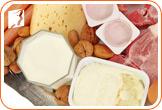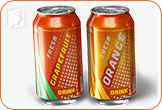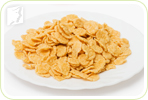
There are dozens of medical conditions that could be classified as digestive problems. Some of the more common ones include diarrhea, acid reflux, indigestion, irritable bowel syndrome, and constipation. These may be attributable to unique medical conditions and may require specialized attention and treatment in order for them to be properly handled.
What Foods to Eat and What Foods to Avoid

Certain foods and drinks may help or hinder your system. Keep reading to learn more.
Get plenty of water
People can get water through fruit, vegetables, juices, soups, or through drinking water, of course. If a person is dehydrated, they may become constipated because their stool dries out in the digestive system and then they have a difficult time expelling it.
Eat a diet rich in fiber

Fiber is needed for healthy digestion, and research shows that most Westerners get about half as much fiber as they need each day. Fiber adds bulk to stool, which allows them to move efficiently through the digestive system. It is recommended to slowly add fiber to your diet, because some foods rich in fiber, such as vegetables and beans, can cause stomach discomfort and gas.
Eat more whole grains

Whole grains aid in digestion and are good for overall health thanks to their fiber and micronutrient content. Try swapping out refined grains for the whole grain versions of pasta, bread, and rice.
Cook with herbs and spices
Cut back on salt intake by substituting flavorful herbs for salt. Adding spices and herbs to foods can also help you better enjoy eating healthy food.
Eat at least 5 fruit and vegetables daily

Fruits and vegetables are vital to maintaining a healthy diet and digestive system. It is recommended to eat at least five servings of fruits and veggies each day.
Avoid processed foods and fast food
These foods are high in saturated fat, which can slow down digestion. In addition, most of these foods are stripped of fiber.
Be careful about dairy

Many people suffer from lactose intolerance, which means that their bodies cannot properly break down the lactose found in dairy products. If you think you are lactose intolerant, it may be a good idea to keep a food diary of what you eat and when you are having digestive problems. If your digestive problems usually happen shortly after eating dairy, you may be lactose intolerant.
Cut back on soda

Fizzy drinks can cause bloating, burping, and the hiccups. They are also bad for your overall health, cause tooth decay, and are full of sugar and empty calories.
Eat foods that contain probiotics
Probiotics are foods like yogurt, kimchi, miso, and sauerkraut that contain healthy bacteria for the fermentation process. Research has shown that they have a myriad of benefits, including preventing diarrhea and strengthening the digestive system.
Limit alcohol and caffeine intake
Excessive caffeine and alcohol intake can have a negative impact on the digestive system and lead to overall health problems.
One Last Tip
Eat a well-balanced and healthy diet, exercise regularly, and find the time to de-stress. If your digestive problems are lowering your quality of life, it is a good idea to see a doctor. Click on the following link to learn more about treating digestive problems during menopause.
Sources
- Harvard Health. (2005). Health benefits of taking probiotics. Retrieved October 29, 2015, from http://www.health.harvard.edu/vitamins-and-supplements/health-benefits-of-taking-probiotics
- Office on Women's Health. (2008). Digestive Health. Retrieved October 29, 2015, from http://womenshealth.gov/publications/our-publications/the-healthy-woman/digestive_health.pdf


